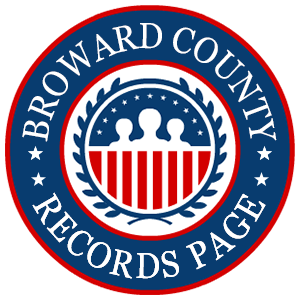Execute a free Broward County warrant search today to check who is wanted locally.
The Florida Sunshine Law and the federal Freedom of Information Act (FOIA) make warrant information available to anyone. These laws allow the public to view and inspect warrant data with certain exceptions — such as if the information can impede an investigation.
Members of the public may want to check warrant records on others or even themselves; they may obtain these records from county, state, and sometimes even local government agencies. Warrant data is typically free, except in cases of copy reproduction.
This resource provides helpful search tools, links to official sources, and guidance on conducting free warrant lookups in Broward County, Florida.
A Look at Finding Free Warrant Details in Broward County Florida
It is vital to have several pieces of information about an individual when attempting to conduct a warrant search—first and foremost, having the full names of the wanted person will allow them to contact public agencies and track down this information.
Knowing what county issued the arrest order and where the subject resided is equally important, as there are numerous counties in the state. In addition, if known, supplementary information such as date of birth (DOB) or case number can be helpful in finding warrant data. Furthermore, some agencies may ask for physical descriptors such as sex, hair and eye color or height.
Judges issue and authorize warrants; therefore, these documents are part of court records. Florida’s court records are considered public data because of the state’s Sunshine Laws.1 Subsequently, anyone can request to view these records except under a few exemptions, such as if releasing this information impedes an investigation.
Interested persons have several avenues to find warrant data; they may turn to two county agencies in Broward County: the Clerk of Courts and the Sheriff’s Office. Some agencies allow the public to access warrant data for free online and sometimes in person. Sometimes, warrant data is available at the municipal level, i.e., cities and towns.
There are several types of warrants in Broward County — with the most common ones being arrest, bench, and probation for violation of supervision; a full discussion on these types of arrest orders appears in the following sections.
How To Conduct a Broward County Warrant Search for Yourself or Someone Else
Patrons have two main county agencies they will need to contact to acquire warrant records and find out if someone is wanted; the Broward County Clerk of Courts and the Sheriff’s Office. These agencies make it possible to search for this data using online portals, electronic record requests, and in-person visits.
Seek Warrant Records via the Clerk of Courts: Since warrants arise from the courts, the Clerk of Courts would be the first place to seek this information in Broward County.2 They may do so electronically, in person or through electronic public record requests.
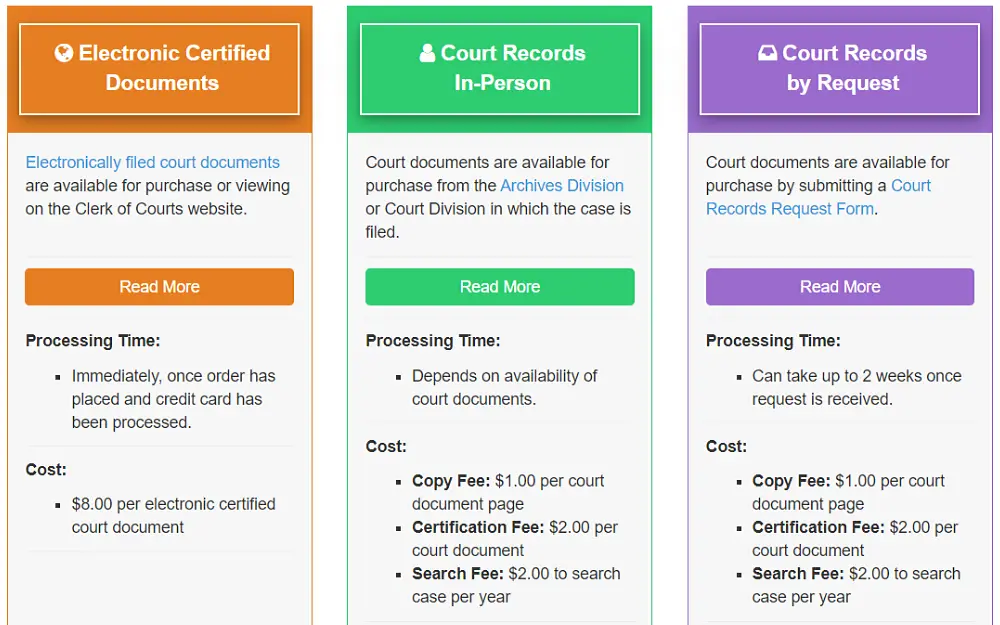
Interested persons can seek warrant records conveniently online using the Broward County Wanted Persons Search Tool, which gives users access to county court records at no cost.3 This instrument can query court records by party name, case number and citation.
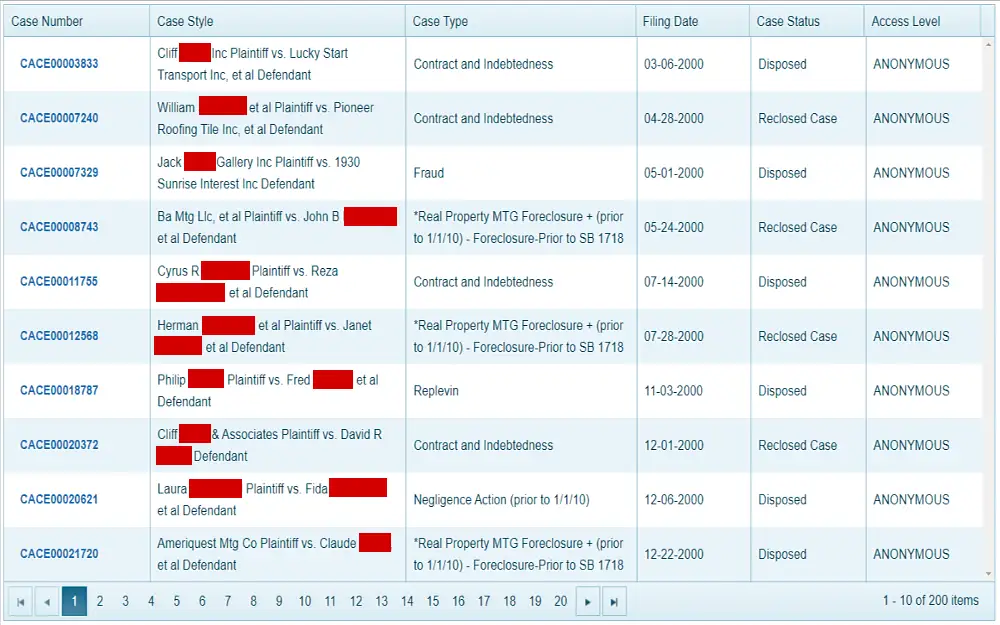
When searching by party name, requestors will select the court type (criminal, civil, traffic and misdemeanor etc), depending on the type of warrant. Upon selecting the case, there is a section for warrant data, including the issue date and reason for the writ (order).
In addition, citizens can make a court records request by downloading and faxing or emailing a warrant record request form.4 Each copy costs $1.00 per page, and a search fee of $2.00 per year applies.
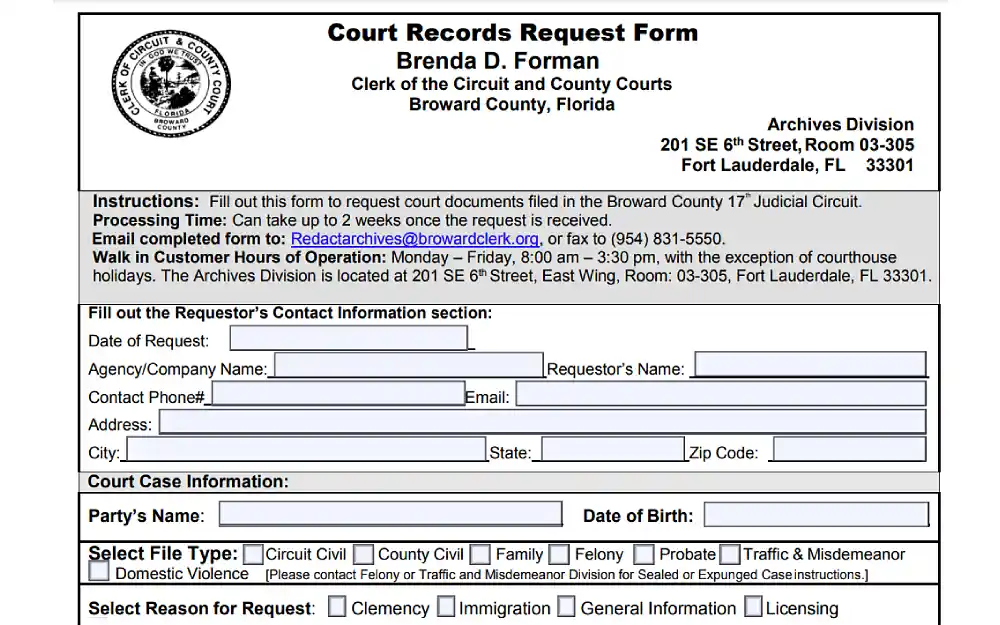
Payment can be made through credit card, cashiers or personal check and money order payable to the “Broward County Clerk of Court.” Fax the form to 954.831.5550 or email [email protected] and expect documents in 2 weeks from the submission date.
Lastly, interested persons may visit the court in person to ascertain warrant information. The same fees and payment methods apply for copying and searching records.
However, personal checks are not accepted. The processing times depend on whether court documents are available. For any questions, contact the Clerk’s Office by calling (954)-831-6565 or emailing [email protected].
Acquire Warrant Information Through the Sheriff’s Office: The Broward County Sheriff’s Office advises patrons to find outstanding warrant data from the Clerk of Courts. However, interested parties may make a record request using an online portal for document requests.5
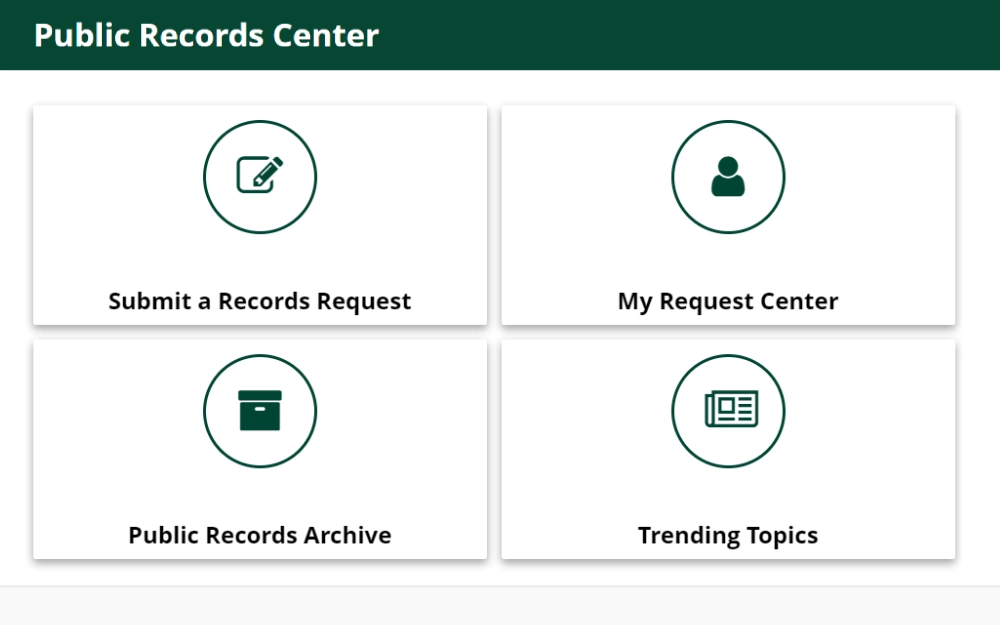
Associated fees may sometimes apply for these requests, and estimates will be provided before the initiation of a search.
Payments are made via check or money order. Only Broward County records will be provided. If unable to use this service, call 954-831-8700 or submit a written request to the Public Records Unit.
Broward Sheriff’s Office
Public Records Unit
Attn: Erin Foley, RMLO
Post Office Box 9507
Fort Lauderdale, Florida 33310
Note: While the sheriff’s office can assist you with looking up other record types too, you can streamline the search with a convenient Broward County arrest lookup or an online mugshot search for anyone local.
Retrieve Warrant Data from Cities in Broward County: In addition to county resources, interested parties can seek warrant information from cities in the county. The three most populated cities in Broward County are Fort Lauderdale, Pembroke Pines and Hollywood.
The Fort Lauderdale Police Department’s Records Unit performs background checks for incidents related to the city. Police record requests can be made in person, by phone, and email.6
Call 954.828.5465 or 954.828.5924 between 6 AM to 11 PM or email [email protected]. Citizens may also make a request at the address below, Monday to Friday. Costs per copy are $0.15 page, and an hourly search fee applies.
Fort Lauderdale Police Department
Records Division
1515 W. Cypress Creek Road
Fort Lauderdale, Florida 33309
How To Check for Warrants Throughout FL (Statewide Search)
Citizens often need to find warrant records for offenders beyond county lines; they can do this by getting in touch with the Florida Department of Law Enforcement (FDLE).7
The FDLE furnishes a Public Access System (PAS) and database that the public can search using the Florida Wanted Persons Search Tool. This instrument is free for public use and draws information from law enforcement agencies authorized for public release throughout Florida.
Users will need to provide information about the offender, including:
- Last Name
- First Name
- Middle Name
- Nickname (if known)
- Race
- Sex
- DOB or Age
While it is sufficient to furnish only a last name while using the search tool, the results will not be narrowed down and return results with that particular last name but varying first names. The information below appears under an offender’s file.
- Mugshot (Photograph) if Available
- Name and Nicknames
- Aliases
- Offense
- Reporting Agency
- Agency Case Number
- Warrant Number
- DOB
- Physical Descriptors Such As Race, Sex, Scars, Height etc.
- Occupation
- Last Known Address
For any questions, contact the FDLE by calling 850.410.7000 or email [email protected].8 Their main physical and mailing addresses (headquarters) appear below.
Florida Department of Law Enforcement
2331 Phillips Road
Tallahassee, Florida 32308
Mailing Address:
Post Office Box 1489
Tallahassee, Florida 32302-1489
A Look at Warrant Types & Their Meanings
The Broward County 17th Judicial Court issues several types of warrants, the most common ones being arrest, bench, and writs for misdemeanor and felony violation probations. A warrant is a written order issued by a judge upon obtaining documentation showing probable cause (of a crime committed) authorizing law enforcement agencies to arrest citizens or search a premises.
As they infringe upon citizen’s rights, warrants are issued only due to probable cause pursuant to the Fourth Amendment of the U.S. Constitution.9
Arrest Warrants—Judges in Broward County issue arrest warrants—these are the most common form of writs approved upon receipt of evidence presented by law enforcement agencies of a possible crime committed. These orders give authorization to the police to take suspects into custody.
Search Warrants—Search warrants give law enforcement agencies the right to search a premises, place, vehicle, or thing.10
Bench Warrants—When a person fails to appear for their scheduled hearings, the judge will issue a bench warrant to permit law enforcement agencies to bring the subject in for the court appearance.
Probation & Parole Warrants—Offenders who are under supervision from jail or prison while living in the community must do so under certain conditions, such as reporting regularly to their probation or parole officers. If they fail to do this or do not fulfill other conditions, a probation or parole warrant may be issued against them.
Traffic Warrants—Offenders who have unpaid fines and tickets from traffic infractions may receive traffic warrants.
Child Support Warrants—Parents with child maintenance obligations may sometimes fall behind in payments. When this happens, they may receive child support warrants against them to remedy the situation.
Capias & Capias Pro Fine Warrants—When a defendant has pleaded guilty either through a plea, court appearance or an arraignment in jail, they may be required to pay a fine or meet conditions set by the court. If they fail to pay or meet these conditions, the court will issue Capias & Capias Pro Fine Warrants.
Fugitive Warrants—These warrants are sent across state lines when a suspect is believed to be in a local jurisdiction.
Governor’s Warrants—A Governor’s warrant will bring back an offender back to the state where they committed a crime.
Juvenile Pickup Order—Juvenile pick-up orders instruct law enforcement officials to take minors under the age of 18 who are suspected of a crime into custody.
How To Respond to an Outstanding Warrant in Broward County FL
Citizens must cure their outstanding warrants to avoid worrying about being unexpectedly taken into custody. In addition, once an individual finds out that someone else has a warrant in Broward County, they should try to inform them of the situation. More than often than not, individuals may have outstanding warrants without even knowing it.
If the warrant is for someone not close to them such as a family member or friend, but an individual who may be wanted and pose a danger to the community, citizens should report the offender to law enforcement agencies. Often, they can do this by submitting tips, as in the case of wanted persons found through the Florida Department of Law Enforcement (FDLE).
Citizens may also inform the Broward County Sheriff’s Office of wanted offenders.11, 12
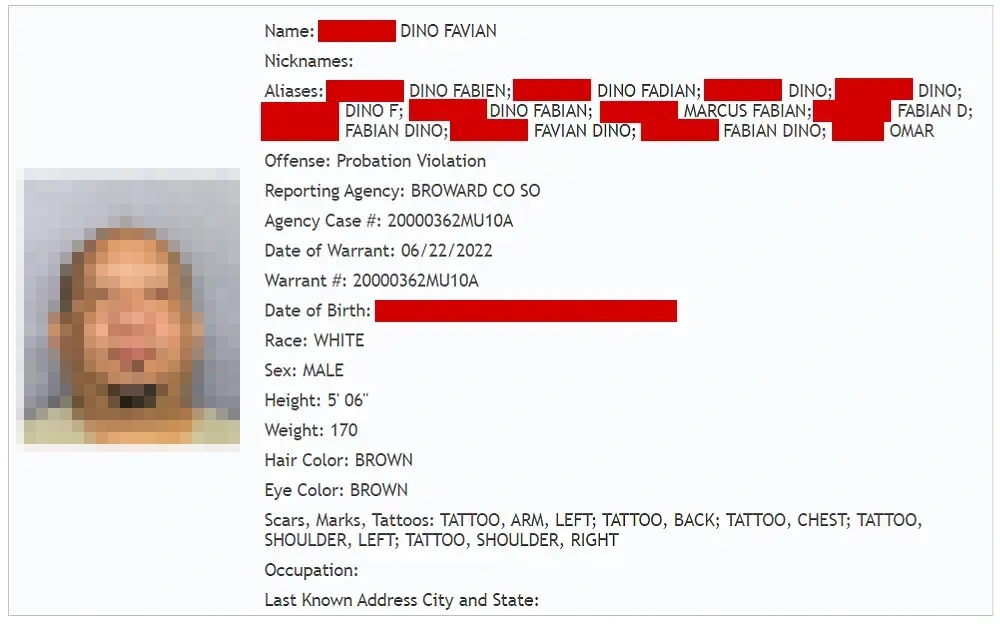
Thankfully, there are several steps citizens can take to respond to and resolve their warrants; some of these measures include paying outstanding fines and preventing any jail time.
- Patrons should enlist the services of a lawyer, especially if the warrant has been outstanding for a while. Attorneys will help individuals resolve the warrant with the best possible terms and reduce the risk of jail time.
- Wanted persons should pay fines and abide by the conditions that cause warrant initiation.
- Citizens may also schedule a new court date for bench warrants to appear before a judge. They should follow up this appearance with an apology to the court.
- In some cases, warrants cannot be resolved unless the offender turns themselves in. Contact family members and legal representatives before doing this. Enlisting a bail bond agent is recommended to help secure bail for release from custody.
Citizens can run a Broward County warrant search to find records on themselves or wanted persons using the information provided in this article, which offers helpful resources such as aggregate links from official channels.
References
1The Florida Legislature. (2023). Statutes & Constitution: The 2023 Florida Statutes (including Special Session C). Retrieved January 04, 2024, from <http://www.leg.state.fl.us/statutes/index.cfm?App_mode=Display_Statute&Search_String=&URL=0100-0199/0119/Sections/0119.01.html>
2Broward County Clerk of Courts. (n.d). Records Request: Overview. Retrieved January 04, 2024, from <https://www.browardclerk.org/GeneralInformation/RecordsRequest#Overview>
3Broward County Clerk of Courts. (n.d). Case Search – Public. Retrieved January 04, 2024, from <https://www.browardclerk.org/web2>
4Broward Clerk of the Circuit and County Courts. (n.d). Records Request: Court Records by Request. Retrieved January 04, 2024, from <https://www.browardclerk.org/GeneralInformation/RecordsRequest#CourtRecordsbyRequest>
5Broward County Sheriff’s Office. (n.d). Public Records Center. Retrieved January 04, 2024, from <https://nogroup-browardcountysheriff.govqa.us/WEBAPP/_rs/(S(e2hu512bxk5jb5gtdggynlom))/SupportHome.aspx?sSessionID=>
6Fort Lauderdale Police Department. (n.d). Public Records Request. Retrieved January 04, 2024, from <https://www.flpd.gov/community-resources/public-records-request>
7Florida Department of Law Enforcement. (n.d). About FDLE. Retrieved January 04, 2024, from <https://www.fdle.state.fl.us/About-Us>
8Florida Department of Law Enforcement. (n.d). Contacts. Retrieved January 04, 2024, from <https://www.fdle.state.fl.us/Contacts.aspx>
9Reagan Presidential Library & Museum. (n.d). Constitutional Amendments – Amendment 4 – “The Right to Privacy”. Retrieved January 04, 2024, from <https://www.reaganlibrary.gov/constitutional-amendments-amendment-4-right-privacy>
10The Florida Senate. (2018). 2018 Florida Statutes: Chapter 933 Section 01. Retrieved January 04, 2024, from <https://www.flsenate.gov/Laws/Statutes/2018/0933.01>
11The Florida Crime Information Center. (n.d). Public Access System (PAS): Wanted Persons Search. Retrieved January 04, 2024, from <http://pas.fdle.state.fl.us/pas/restricted/PAS/person/WantedPersons.jsf>
12Broward County Sheriff’s Office. (n.d). Contact Us: BSO District Offices. Retrieved January 04, 2024, from <https://www.sheriff.org/LE/Pages/Contact-Us.aspx>
